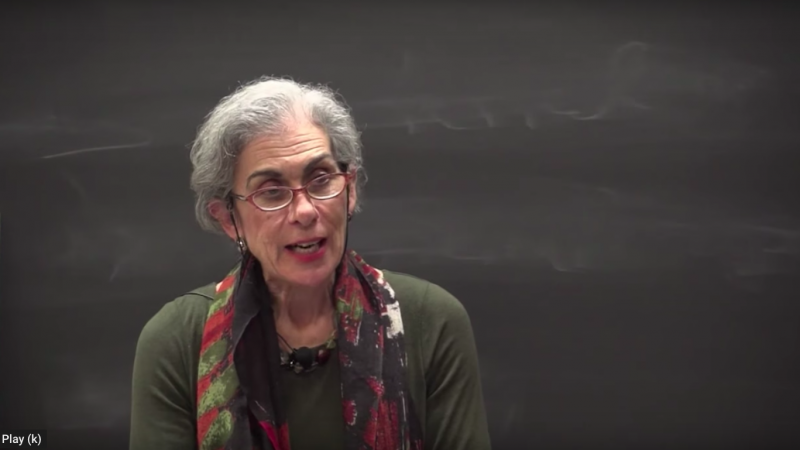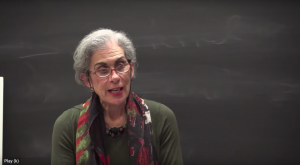

University of Pennsylvania law professor Amy Wax faces investigation and possible sanctions from her university, as a result of her statement that “as long as most Asians support Democrats and help to advance their positions, I think the United States is better off with fewer Asians and less Asian immigration.” Her support for racial discrimination in immigration policy is not an isolated remark. At the 2019 National Conservatism conference, Wax said much the same thing about non-white immigrants generally, arguing for “the position that our country will be better off with more whites and fewer nonwhites.”
On the issue of sanctions, I largely agree with the Academic Freedom Alliance’s letter about this case, emphasizing the principle that universities should not punish faculty for out-of-class political speech (I am a member of AFA myself, but was not involved in the drafting of this letter). Penn is a private university, so the First Amendment does not apply. Nonetheless, I don’t think university administrators can be trusted to enact such speech restrictions or to enforce them fairly. Any attempts to do so is likely to undermine academic freedom, and reduce the quality of intellectual discourse.
That said, Wax’s statements on immigration are deeply problematic, and deserve severe criticism. Worse, they are symptomatic of a broader pattern on the right. All too many conservatives support discrimination and injustice in immigration policy of a kind they would reject elsewhere.
Wax and her supporters defend her comments on immigration by emphasizing that her objections to Asian immigrants and non-white ones generally are not about biological race, as such, but merely about their political and cultural values. If Asian immigrants voted for Republicans, rather than Democrats, she would perhaps be happy to take more of them.
But this defense doesn’t cut it. Wax is still advocating large-scale racial and ethnic discrimination. The fact that she wants to use race and ethnicity as crude proxies for other characteristics doesn’t make it right. Conservatives, including Wax herself, readily see that when it comes to racial preferences in college admissions, defended on the grounds that African-American applicants, for example, are more likely to have been victims of racial injustice or to contribute to “diversity” on campus. The idea that blacks are, on average, more likely to have experienced racism in American society than whites, is likely true. Nonetheless, Wax rejects such rationales for racial preferences, on principle, and instead (correctly, in my view) advocates color-blind admissions.
The very same logic should dictate color-blindness – and rejection of ethnic and national-origin discrimination – in immigration policy, as well. Indeed, racial and ethnic discrimination in immigration policy is a far greater injustice than affirmative action preferences in university admissions. Most victims of the latter still get to go to college in the US, usually at universities only modestly less prestigious than the ones that rejected them. By contrast, many victims of racial and ethnic discrimination in immigration policy are consigned to a lifetime of poverty and oppression in their countries of origin.
If the reason to oppose racial and ethnic discrimination in college admissions is that government and university bureaucrats can’t be trusted to craft such policies fairly, the same point applies in spades to immigration policy. Indeed, anti-Asian discrimination in the former is often motivated by the same sorts of crude stereotypes as the latter.
To the extent that (as in Wax’s case) discrimination in immigration are based no generalizations about the political views of various racial and ethnic groups, they also run up against principles of freedom of speech. It is striking that many of the same conservatives who advocate viewpoint-based immigration restrictions are also deeply angry about “cancel culture” and government attempts to combat supposed “misinformation” online. If we can’t trust government and university officials to properly regulate speech on social media or that of academics like Wax, why should we trust the government to decide which would-be immigrants’ political views are acceptable, and which ones have bad cultural values?
That’s especially true if we are talking about excluding people not based on their actual views, but merely based on crude generalizations about the views of members of their racial or ethnic group. If Wax ends up getting punished for herstatements, it will at least be for things she actually said. It would be much worse if she were sanctioned merely because she is white, and university administrators concluded that whites, on average, are more likely to have reprehensible views on racial issues than members of other groups.
Some argue that this kind of double standard is acceptable because would-be immigrants don’t have a right to come to the US. I deny the latter premise. Indeed, most immigration restrictions are unjust for much the same reasons as domestic racial discrimination is, and standard rationales for a general right of governments to exclude immigrants collapse upon close inspection.
But even if you accept the conventional wisdom that governments have a general right to exclude migrants, it doesn’t follow they can do so based on racial and ethnic discrimination. Racial discrimination in government policy is wrong even with respect to institutions from which the government can bar people for other reasons. For example, the government isn’t required to admit any particular applicant to a public university, or even to establish such schools at all. But racial discrimination in state university admissions is still unjust (and outrages conservatives, including Amy Wax).
The same goes for discrimination based on political views. A state university that admitted only Democrats (or only Republicans) would be an affront to freedom of speech. Conservatives would be among the first to object to it.
There is no good reason to exempt immigration restrictions from moral constraints that apply to other government policies. And that especially goes for restrictions based on crude racial and ethnic stereotypes, such as lumping together all Asians and all non-whites, ignoring the vast diversity within both categories.
If these kinds of double-standards were unique to Wax, they wouldn’t matter much. But, sadly, such views are common on much of the political right. Many of them cheered Donald Trump’s stigmatization of Mexican immigrants, his advocacy of banning migration from “shithole countries” (all of them majority non-white), and his travel bans openly directed at Muslims, in a way conservatives rightly denounce as unconstitutional and unjust in the domestic context. More generally, all too many on the right support a jurisprudence under which immigration restrictions are largely exempted from constitutional constraints that apply to virtually all other government policies, including freedom of speech, and rules against racial, ethnic, and religious discrimination.
The political left has its own flaws, when it comes to racial and ethnic discrimination, including anti-Asian bias in admissions at various elite educational institutions, which I have condemned. But their flaws are no excuse for egregious conservative double standards on immigration.
If you truly support principles like color-blindness and freedom of speech and religion, you can’t chuck them out the window when the subject turns to immigration policy. Conservatives would do well to remember that.
Indeed, experience shows that promoting invidious discrimination in one area of government policy increases the risk that it will spread to others. Historically, racist immigration policies were closely tied to similar bigotry at home, with each feeding off the other. Anti-Asian immigration restrictions in the late 19th and early twentieth centuries coincided with discriminatory policies against those same groups within the United States; the two were mutually reinforcing. The same pattern could well recur today.
The post Amy Wax and the Problem of Right-Wing Double Standards on Immigration appeared first on Reason.com.
from Latest – Reason.com https://ift.tt/3GEvlS1
via IFTTT